#smaran ghosal
Photo
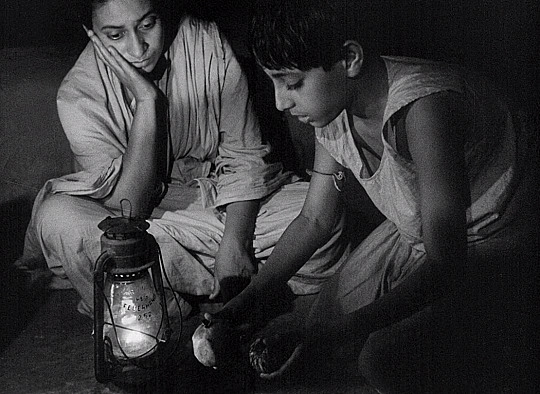


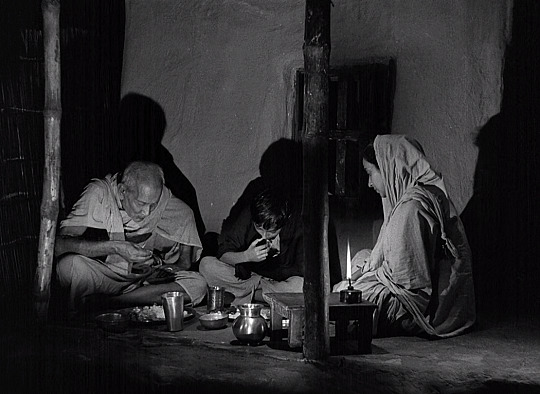
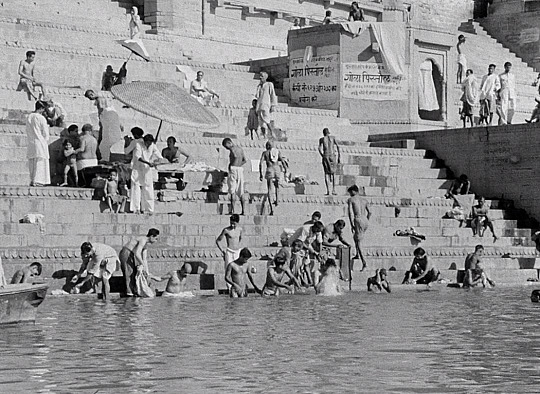
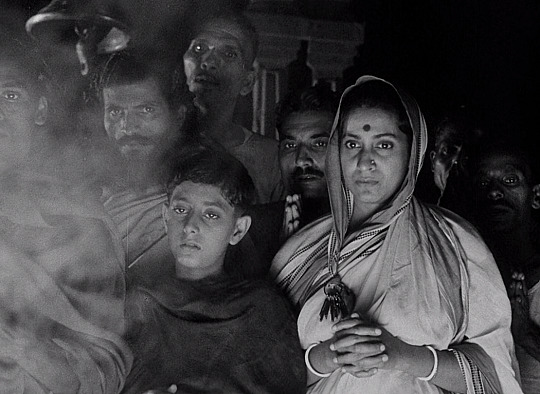
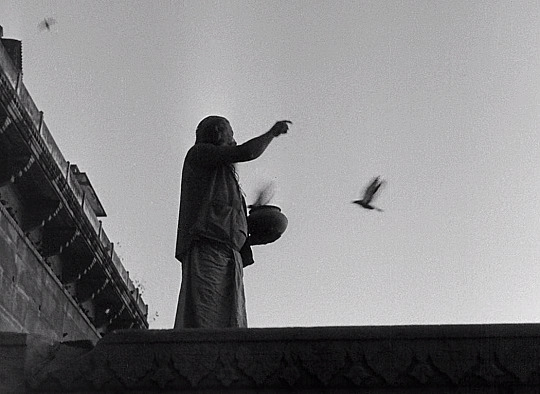
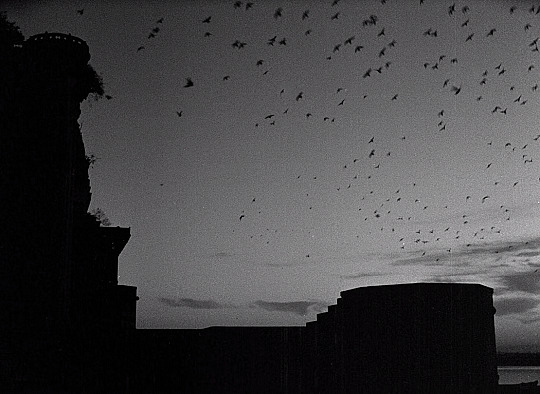
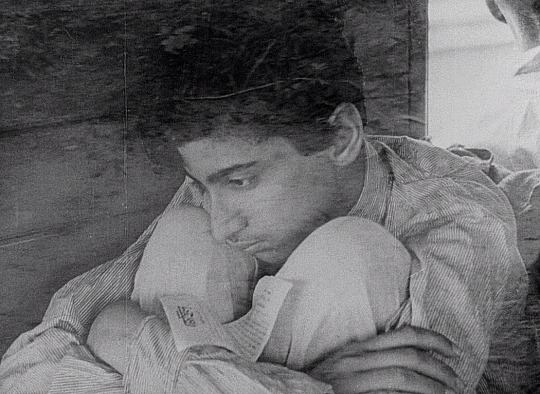
Aparajito (1956) // dir. Satyajit Ray
55 notes
·
View notes
Photo
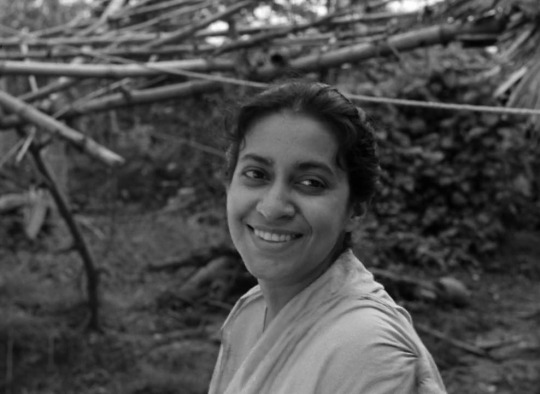
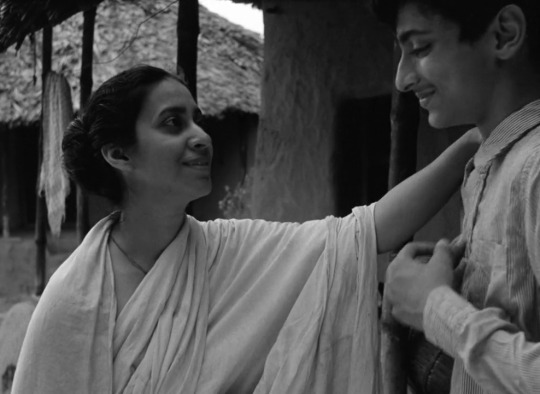
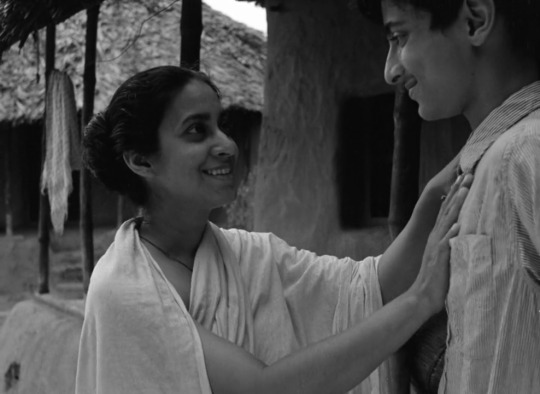
Aparajito (1956) // dir. Satyajit Ray
#aparajito#aparajito 1956#satyajit ray#indian cinema#bengali cinema#cinema#the unvanquished#karuna banerjee#karuna bannerjee#smaran ghosal#apu trilogy#the apu trilogy
11 notes
·
View notes
Photo
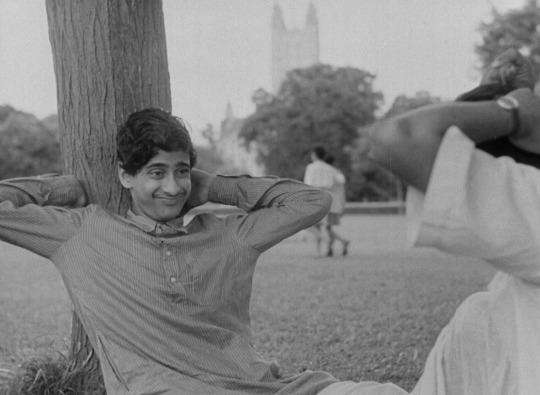
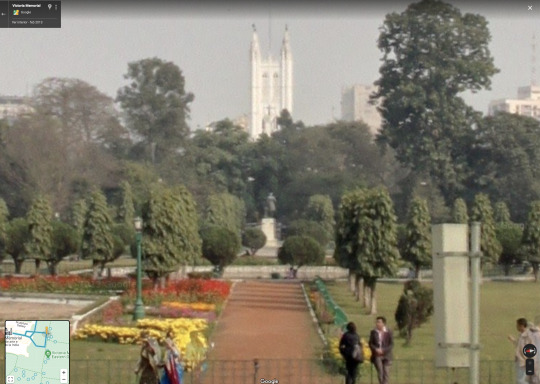
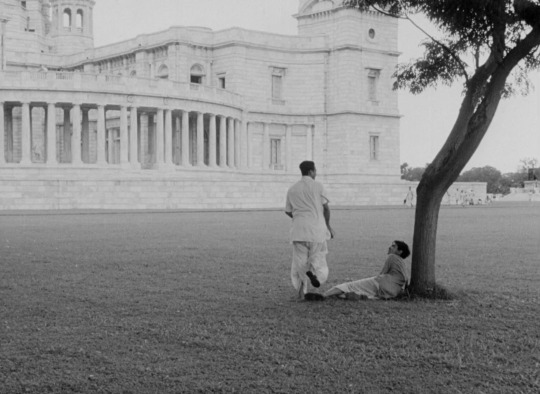

অপরাজিত / Aparajito
Satyajit Ray. 1956
Park
Victoria Memorial Hall, 1, Queens Way, Maidan, Kolkata, West Bengal 700071, India
See in map
See in imdb
#satyajit ray#aparajito#india#অপরাজিত#victoria memorial hall#smaran ghosal#maidan#calcutta#west bengal#movie#cinema#film#location#google maps#street view
19 notes
·
View notes
Text
The Apu Trilogy

Subir Banerjee in Pather Panchali (Satyajit Ray, 1955)
Cast: Kanu Bannerjee, Karuna Bannerjee, Chunibala Devi, Uma Das Gupta, Subir Banerjee, Runki Banerjee, Reba Devi, Aparna Devi, Tulsi Chakraborty. Screenplay: Satyajit Ray, based on a novel by Bibhutibhushan Bandyopadhyay. Cinematography: Subrata Mitra. Production design: Bansi Chandragupta. Film editing: Dulal Dutta. Music: Ravi Shankar.
When I first saw Pather Panchali I was in my early 20s and unprepared for anything so foreign to my experience either in life or in movies. And as is usual at that age, my response was to mock. So half a century passed, and when I saw it again both the world and I had changed. I now regard it as a transformative experience -- even for one whom the years have transformed. What it shows us is both alien and familiar, and I wonder how I could have missed its resonance with my own childhood: the significance of family, the problems consequent on adherence to a social code, the universal effect of wonder and fear of the unknown, the necessity of art, and so on. Central to it all is Ray's vision of the subject matter and the essential participation of Ravi Shankar's music and Subrata Mitra's cinematography. And of course the extraordinary performances: Kanu Bannerjee as the feckless, deluded father, clinging to a role no longer relevant in his world; Karuna Bannerjee as the long-suffering mother; Uma Das Gupta as Durga, the fated, slightly rebellious daughter; the fascinating Chunibala Devi as the aged "Auntie"; and 8-year-old Subir Banerjee as the wide-eyed Apu. It's still not an immediately accessible film, even for sophisticated Western viewers, but it will always be an essential one, not only as a landmark in the history of movie-making but also as an eye-opening human document of the sort that these fractious times need more than ever.

Smaran Ghosal in Aparajito (Satyajit Ray, 1956)
Cast: Pinaki Sengupta, Smaran Ghosal, Kanu Bannerjee, Karuna Bannerjee, Ramani Sengupta, Charuprakash Ghosh, Subodh Ganguli. Screenplay: Satayajit Ray, Kanaili Basu, based on a novel by Bibhutibhushan Bandyopadhyay. Cinematography: Subrata Mitra.
Production design: Bansi Chandragupta. Film editing: Dulal Dutta. Music: Ravi Shankar
As the middle film of a trilogy, Aparajito could have been merely transitional -- think for example of the middle film in The Lord of the Rings trilogy: The Two Towers (Peter Jackson, 2002), which lacks both the tension of a story forming and the release of one ending. But Ray's film stands by itself, as one of the great films about adolescence, that coming-together of a personality. The "Apu trilogy," like its source, the novels by Bibhutibhushan Bandyopadhyay, is a Bildungsroman, a novel of ... well, the German Bildung can be translated as "education" or "development" or even "personal growth." In Aparajito, the boy Apu (Pinaki Sengupta) sprouts into the adolescent Apu (Smaran Ghosal), as his family moves from their Bengal village to the city of Benares (Varanasi), where Apu's father continues to work as a priest, while his mother supplements their income as a maid and cook in their apartment house. When his father dies, Apu and his mother move to the village Mansapota, where she works for her uncle and Apu begins to train to follow his father's profession of priest. But the ever-restless Apu persuades his mother to let him attend the village school, where he excels, eventually winning a scholarship to study in Calcutta. In Pather Panchali (1955), the distant train was a symbol for Apu and his sister, Durga, of a world outside; now Apu takes a train into that world, not without the painful but necessary break with his mother. Karuna Bannerjee's portrayal of the mother's heartbreak as she releases her son into the world is unforgettable. Whereas Pather Panchali clung to a limited setting, the decaying home and village of Apu's childhood, the richness of Aparajito lies in its use of various settings: the steep stairs that Apu's father descends and ascends to practice his priestly duties on the Benares riverfront, the isolated village of Mansapota, and the crowded streets of Kolkata, all of them magnificently captured by Subrata Mitra's cinematogaphy.
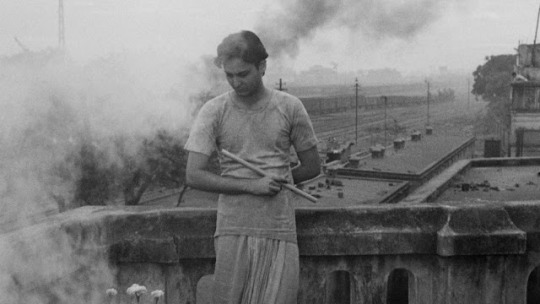
Soumitra Chatterjee in The World of Apu (Satyajit Ray, 1959)
Cast: Soumitra Chatterjee, Sharmila Tagore, Swapan Mukherjee, Alok Chakravarty, Dhiresh Majumdar, Dhiren Ghosh. Screenplay: Satyajit Ray, based on a novel by Bibhutibhushan Bandyopadhyay. Cinematography: Subrata Mitra. Production design: Bansi Chandragupta. Film editing: Dulal Dutta. Music: Ravi Shankar.
The exquisite conclusion to Ray's trilogy takes Apu (Soumitra Chatterjee) into manhood. He leaves school, unable to afford to continue into university, and begins to support himself by tutoring while trying to write a novel. When his friend Pulu (Swapan Mukherjee) persuades him to go along to the wedding of his cousin, Aparna (Sharmila Tagore), Apu finds himself marrying her: The intended bridegroom turns out to be insane, and when her father and the other villagers insist that the astrological signs indicate that Aparna must marry someone, Apu, the only available male, is persuaded, even though he regards the whole situation as nonsensical superstition, to take on the role of bridegroom. (It's a tribute to both the director and the actors that this plot turn makes complete sense in the context of the film.) After a wonderfully awkward scene in which Apu and Aparna meet for the first time, and another in which Aparna, who has been raised in comparative luxury, comes to terms with the reality of Apu's one-room apartment, the two fall deeply in love. But having returned to her family home for a visit, Aparna dies in childbirth. Apu refuses to see his son, Kajal (Alok Chakravarty), blaming him for Aparna's death and leaving him in the care of the boy's grandfather. He spends the next five years wandering, working for a while in a coal mine, until Pulu finds him and persuades him to see the child. As with Pather Panchali and Aparajito, The World of Apu (aka Apur Sansar) stands alone, its story complete in itself. But it also works beautifully as part of a trilogy. Apu's story often echoes that of his own father, whose desire to become a writer sometimes set him at odds with his family. When, in Pather Panchali, Apu's father returns from a long absence to find his daughter dead and his ancestral home in ruins, he burns the manuscripts of the plays he had tried to write. Apu, during his wanderings after Aparna's death, flings the manuscript of the novel he had been writing to the winds. And just as the railroad train figures as a symbol of the wider world in Pather Panchali, and as the means to escape into it in Aparajito, it plays a role in The World of Apu. Instead of being a remote entity, it's present in Apu's own back yard: His Calcutta apartment looks out onto the railyards of the city. Adjusting to life with Apu, Aparna at one point has to cover her ears at the whistle of a train. Apu's last sight of her is as she boards a train to visit her family. And when he reunites with his son, he tries to play with the boy and a model train engine. The glory of this film is that it has a "happy ending" that is, unlike most of them, completely earned and doesn't fall into false sentiment. I don't use the world "masterpiece" lightly, but The World of Apu, both alone and with its companion films, seems to me to merit it.
3 notes
·
View notes
Photo
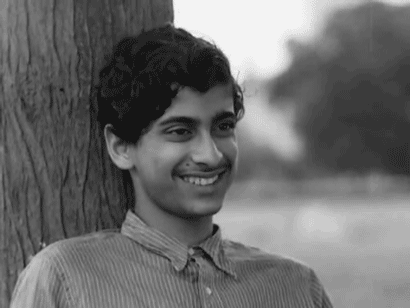
8 notes
·
View notes
Photo
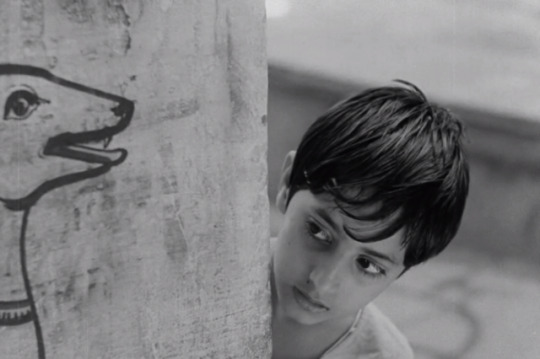
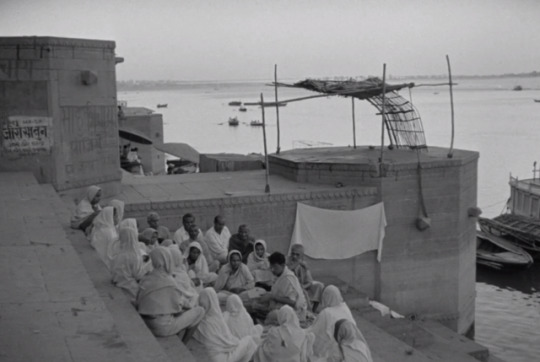
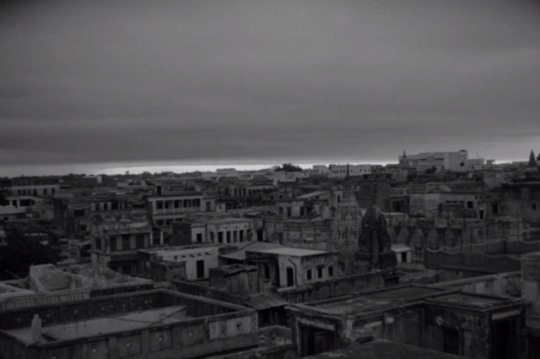
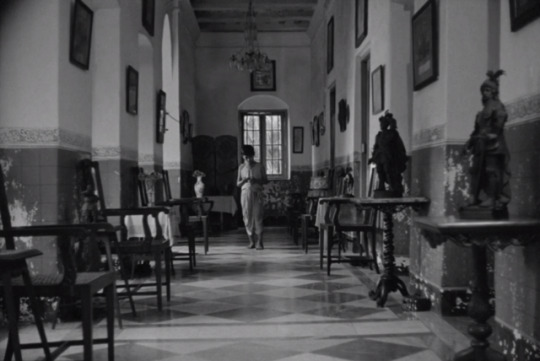
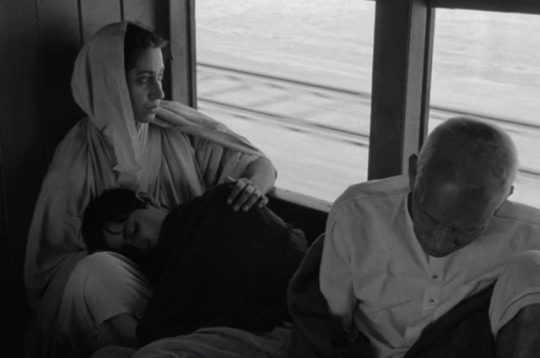
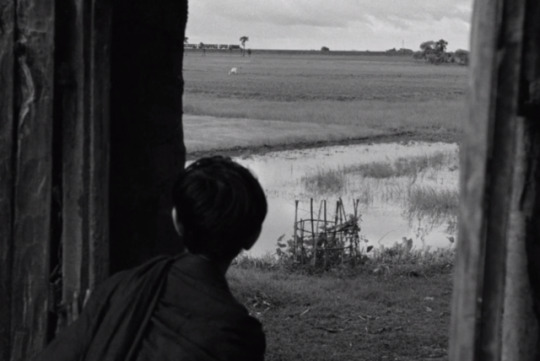
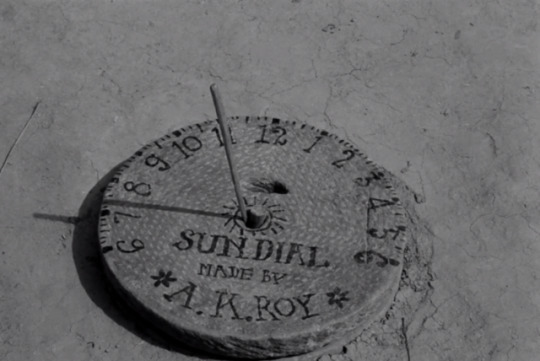
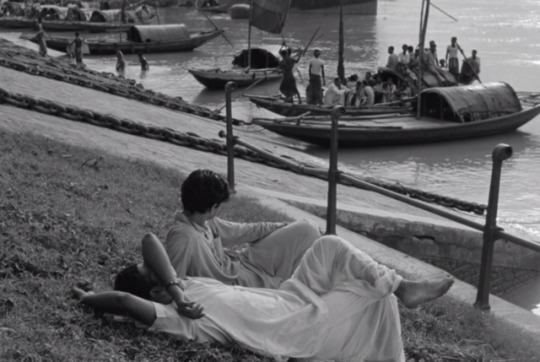
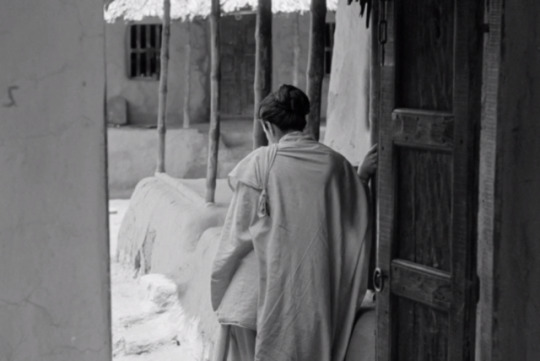
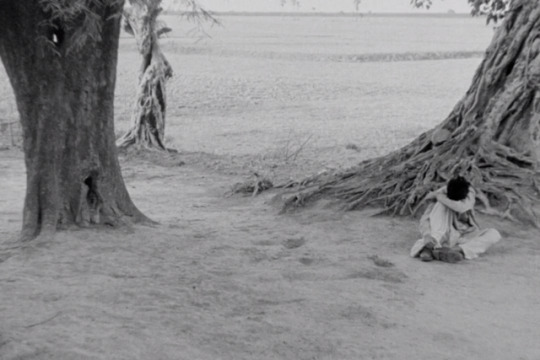
Aparajito (1956, Satyajit Ray)
#aparajito#the unvanquished#satyajit ray#the apu trilogy#smaran ghosal#karuna bannerjee#film#screencaps#q
277 notes
·
View notes
Text
Shotoborsher Satyajit

Any discussion on cinema, especially Indian cinema, will remain incomplete unless you mention a maverick of a filmmaker, the legendary director Satyajit Ray- one of the very few Indian filmmakers to win an Academy Award (Oscar). Ray's works always came with a new lesson for aspiring filmmakers. He made 36 movies in a career spanning 37 years. Every film is distinguishable in its way, and that it is almost impossible to pick one over the other. On his 100th birth anniversary, as the Oscar-winning filmmaker, writer, and illustrator stands tall as an eternal Bengali icon. Us at hoichoi pay tribute to the Renaissance man of Bengali cinema and his creations through Shotoborshe Satyajit, a unique collection of films directed by him and his writings later adapted into movies. Here are the 11 iconic films featured in this series.
Pather Panchali
One of the greatest classics of Indian cinema, released in 1955, this Satyajit Ray film was produced by the Government of West Bengal. Based on Bibhutibhushan Bandhopadhyay's 1929 Bengali novel of the same name. With this movie, Satyajit Ray made his directorial debut. The film features Subir Banerjee, Kanu Banerjee, Karuna Banerjee, Uma Dasgupta, and Chunibala Devi. The story of a young boy, Apu, and his sister, Durga, and their life in a small village of Bengal. Pather Panchali is a turning point in Indian cinema, with its poetic scenes managing to capture literature into filmmaking. The film won eleven international prizes, including the coveted Academy Award, and was among the films that pioneered the parallel cinema movement.
Hirak Rajar Deshe
A film that echoes the legacy of Satyajit Ray and his nature of challenging conventional customs. A children's movie filled with magic and music that also served as a robust satire to the oppression of state and ruling powers. Ray depicted societal issues in a subtle way, covered by humour without destroying its seriousness or sanctity. Featuring legendary actors like Soumitra Chatterjee, Utpal Dutt, Rabi Ghosh, this film is loved throughout the ages and remains an evergreen classic.
Aparajito
The second part of The Apu Trilogy, directed by Satyajit Ray. The film starts with Apu moving to Varanasi with his family and chronicles Apu's life from childhood to adolescence in college, right up to his mother's death, when he is left all alone. The film features Pinaki Sen, Smaran Ghosal, Kanu Banerjee, Karuna Banerjee, Ramani Ranjan, Charu Prkash, Subodh Ganguly. The film won the Bodil Award for Best non-European Film of the Year in Denmark in 1967, along with other accolades.
Abhijan
One of Satyajit Ray's cult classics. Adapted from the novel Abhijan by Tarashankar Bandhopadhyay. This film features the evils in society and the abstract helplessness of its inhabitants. Starring Gyanesh Mukherjee, Rabi Ghosh, and Soumitra Chatterjee, Abhijan is a story of a taxi driver's attempt of reinventing his life and his eventual surrender to the evils in society. The protagonist Narasingh (played by Soumitra Chatterjee) was a direct influence on the character of the cynical cab driver, Travis Bickle (played by Robert De Niro) in Martin Scorsese's film Taxi Diver. Scorsese himself has credited Satyajit Ray as an influence on his work.
Jalsaghar
The fourth of Ray's feature films, Jalsaghar starring Bengali acting icons like Chhabi Biswas, Padma Devi, and Kali Sarkar, depicts the end days of a decadent Bengali landlord and his efforts to uphold his family prestige while facing economic adversity. Jalsaghar went on to win the Presidential Award for best film in New Delhi and played a significant role in establishing Ray's international reputation as a director.
Chiriakhana
Based on the story by Saradindu Bandopadhyay, Chiriakhana explores the investigation of detective Byomkesh Bakshi. Starring the legendary Uttam Kumar as Byomkesh, it is a rare opportunity of witnessing the work of two luminaries of Bengali cinema in a single cinematic experience.
Professor Shanku O El Dorado
Satyajit Ray, the filmmaker, makes way for Satyajit Ray, the science fiction writer. Helmed by his son Sandip Ray, the film tells the tale of Professor Shanku, a charismatic scientist, and his adventures. The film manages to capture the essence of the professor, loved by readers through ages.
Gorosthane Sabdhan
The genius that is Satyajit Ray was not only limited to film making and science fiction writing. He was equally adept in writing crime thrillers and detective stories. As the creator of the fictional Bengali detective Feluda, Ray's writing prowess is second to none. Gorosthane Sabdhan is a thriller that revolves around the mystery of a lost artefact and Feluda's deductive abilities that help discover it.
Ashani Sanket
Another iconic film that has the impact of an epic without seeming to mean to, The film is set in a village in the Indian province of Bengal during the Second World War and examines the effect of the Great Famine of 1943 on the rural areas of Bengal. Ray successfully shows the human scale of a cataclysmic event that killed many. The film won many accolades at the Berlin International Film Festival, and Ray won the award of the best music director at the National Film Festival.
Goopy Bagha Phire Elo
The sequel to Hirak Rajar Deshe, directed by Sandip Ray. The film continues with the adventures of Goopy and Bagha after they receive their powers from the king of ghosts.
Royal Bengal Rahasya
Another fan favourite movie, based on the immensely popular Feluda series written by Satyajit Ray. The story involves Feluda, as he investigates the case of a man-eating tiger.
3 notes
·
View notes
Text
Brief Review: Aparajito (1956)
Rated the film 3.5 stars out of 5. Perhaps not as moving as its predecessor, but a wonderful second step in the main character’s life, director Ray keeping the atmosphere realistic yet it’s highlighted again by cinematography that beautifully captures the natural landscape as well as the subtle expressions of the characters. Actor Smaran Ghosal does a great job in the lead role but Karuna Bannerjee plays Apu’s mother exceptionally, displaying the personal pain and outward pride in letting her son grow up.
https://www.imdb.com/title/tt0048956/
0 notes
Photo
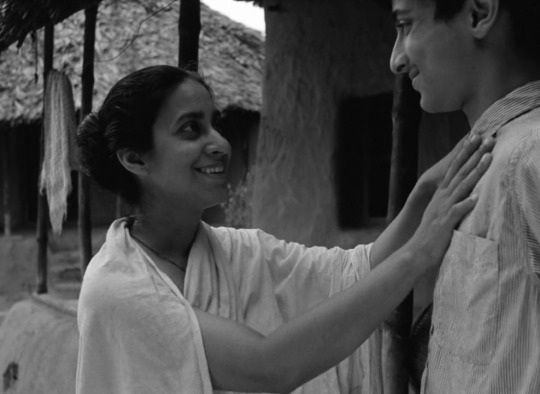
Karuna Banerjee and Smaran Ghosal in Aparajito (1956)
dir. Satyajit Ray
#aparajito#the unvanquished#aparajito 1956#apu trilogy#the apu trilogy#satyajit ray#karuna banerjee#karuna bannerjee#smaran ghosal#british cinema#indian cinema#bengali cinema#films#movies#film scenes#movie scenes#screencaps#cinematography#indian films#indian actress#indian movies#parallel cinema
3 notes
·
View notes
Photo
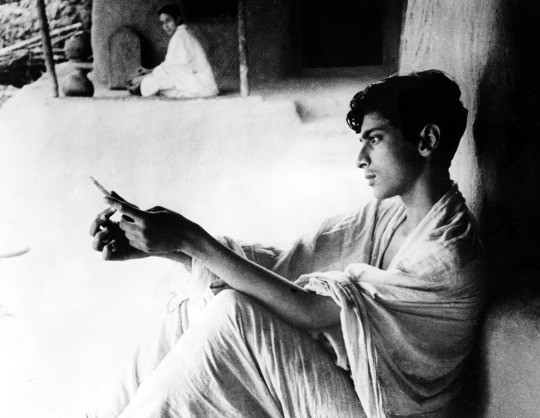
Aparajito. Satyajit Ray, 1957
25 notes
·
View notes
Photo
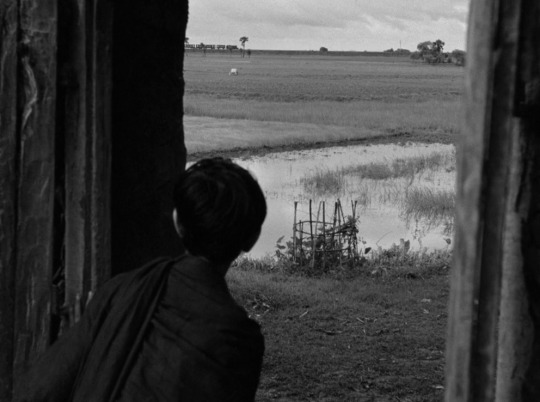
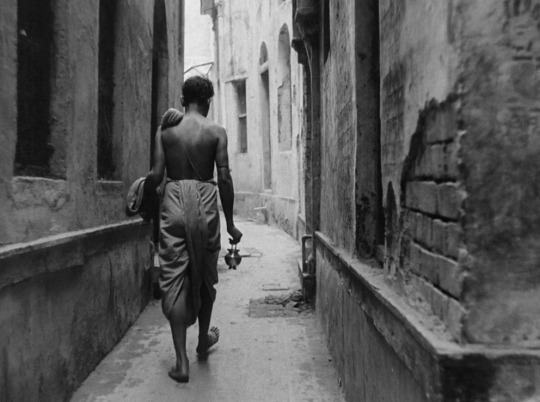
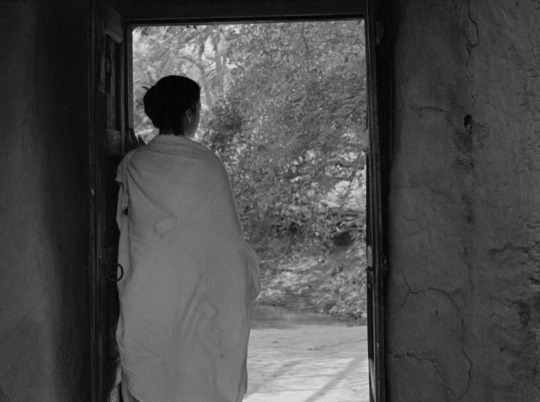
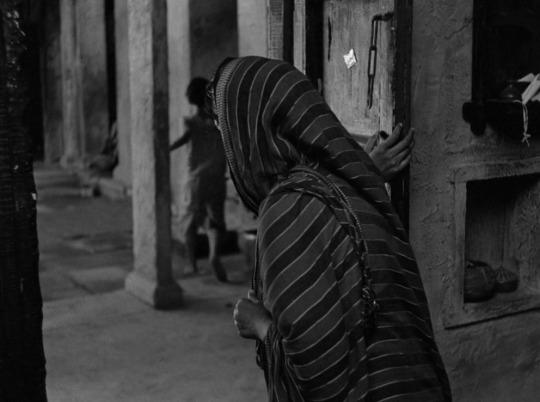
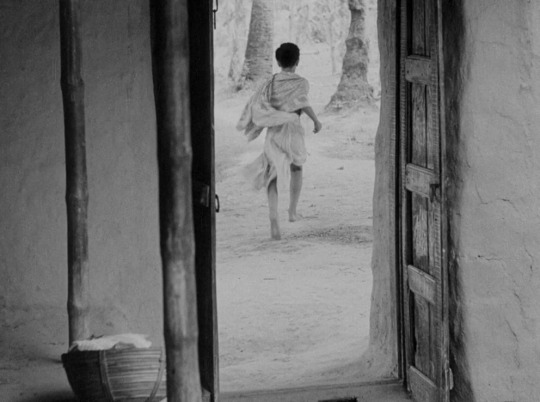
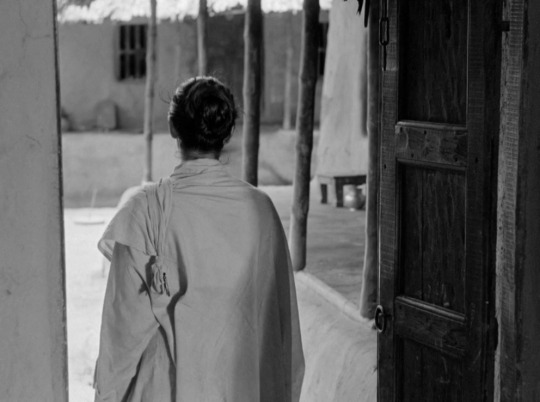
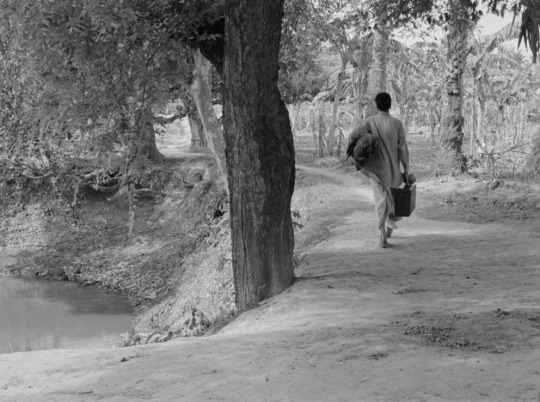
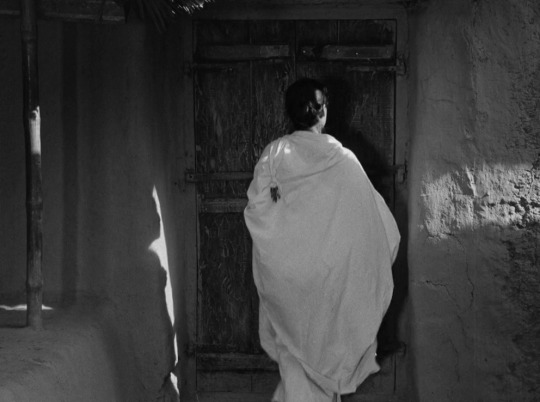
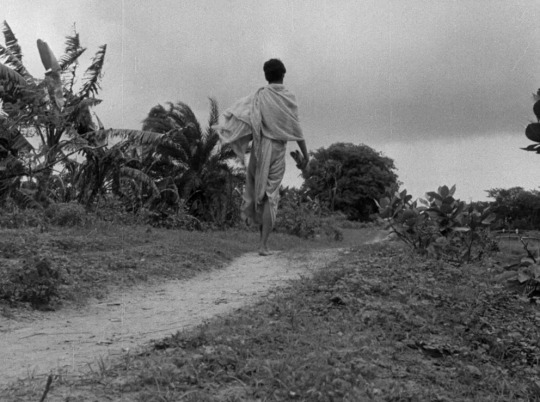
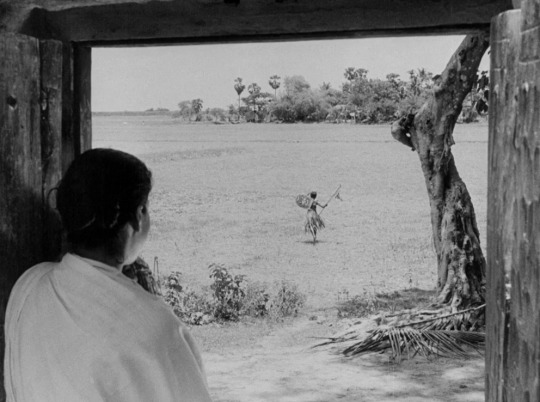
Aparajito (Satyajit Ray, 1956)
#Aparajito#Satyajit Ray#back#long shot#india#faceless#nature#1956#sequel#black and white#Pinaki Sengupta#Smaran Ghosal#Karuna Bannerjee#childhood#doors#Apu
218 notes
·
View notes
Photo
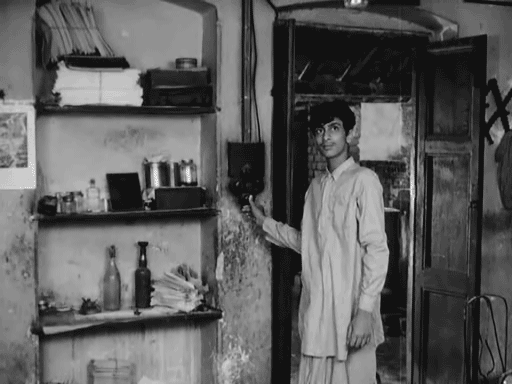
4 notes
·
View notes
Text
Bengali Classics on hoichoi
Ever wondered which are those Bengali classic movies that you should watch on hoichoi. From Satyajit Ray to Tapan Sinha here are the five movies that you should watch on hoichoi.
Hirak Rajar Deshe
Probably the most iconic movie in Bengali film industry Hirak Rajar Deshe directed by Satyajit Ray. The magically musical duo of Goopy and Bagha are still favourites for many after 50 years of its original release (Goopy Gyne Bagha Byne). With outstanding performance from legendary actors like Rabi Ghosh, Tapen Chatterjee, Utpal Dutt, Soumitra Chatterjee made this movie a gem for Indian film industry. A unique aspect of this film is that most of the dialogues exchanged by the protagonists of the film are rhyming except the teacher. The film was the third film of the series.
Pather Panchali
Released in 1955 directed by Satyajit Ray produced by Government of West Bengal the film is based on Bibhutibhushan Bandyopadhya’s 1929 Bengali novel of the same name. With this movie Satyajit Ray made his directorial debut. The film features Subir Banerjee, Kanu Banerjee, Karuna Banerjee, Uma Dasgupta and Chunibala Devi. The story of a young boy, Apu , and life in his small Indian village. His parents are quite poor. His father Harihar dreaming of a better life for himself and his family, leaves his rural Bengal village in search of work. Pather Panchali is described as a turning point in Indian cinema, as it was among the films that pioneered the parallel cinema movement.
Kabuliwala
Based on Rabindranath Tagore’s story Directed by Tapan Sinha the film was released on 4th January 1957. The movie features Chhabi Biswas, Tinku, Radhamohan Bhattacharya, Manju Dey, Jiben Bose in the lead roles. Rahmat played by Chhabi Biswas a middle-aged fruit seller from Afghanistan, comes to Calcutta. He befriends a small Bengali girl called Mini who reminds him of his daughter back in Afghanistan and the story begins. The film was rewarded with the National Film Award for Best Feature Film & National Film Award for Best Feature Film in Bengali in 1956-1957.
Chiriakhana
Based on Sharadindu Bandyopadhyay’s novel and directed by Satyajit Ray the film is about the iconic detective character of Bengali film industry Byomkesh Bakshi. The film starring Uttam Kumar as Byomkesh Bakshi, Shailen Mukherjee as Ajit, Subhendu Chatterjee, Kalipada Chakraborty in the lead roles. In this movie Byomkesh is hired by a rich man to investigate the name of an actress appeared in a movie decades ago, the case became much more complicated when the rich man is murdered by someone.
Aparajito
Directed by Satyajit Ray it is the second part of The Apu Trilogy. The film starts off where the previous film Pather Panchali ended. With Apu family moving to Varanasi, and chronicles Apu's life from childhood to adolescence in college, right up to his mother's death, when he is left all alone. The film features Pinaki Sen, Smaran Ghosal, Kanu Banerjee, Karuna Banerjee, Ramani Ranjan, Charu Prkash, Subodh Ganguly. The film won the Bodil Award for Best non-European Film of the Year at Denkmark in 1967 and many more.
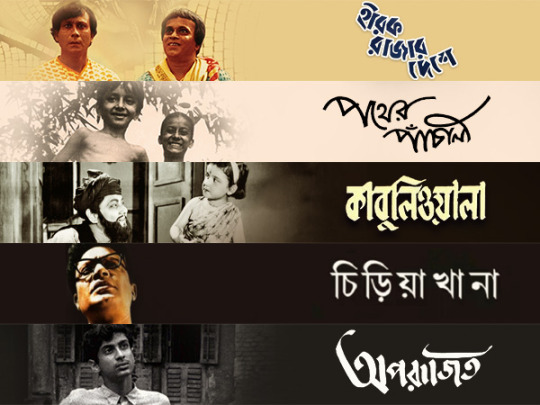
0 notes